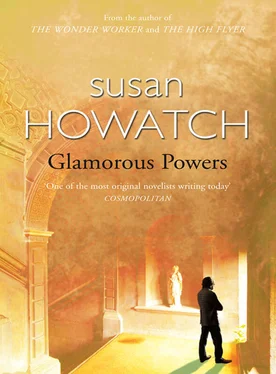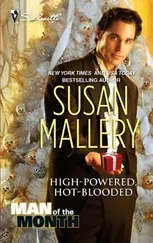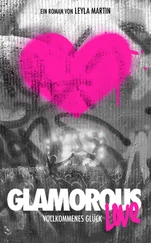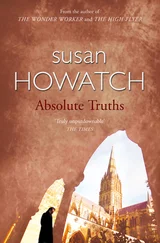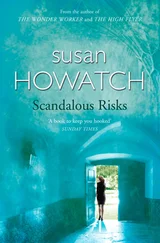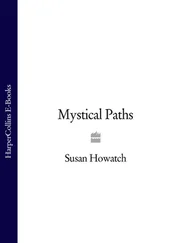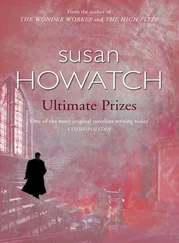My first act was to take down the three pictures and put them in the wardrobe. I like paintings but when I am at work I find them distracting. Then I rolled up the carpet, which was woven into a pattern so exquisite that I had already wasted far too much time gazing at it, and tackled the bed, which I knew from past experience during the annual abbots’ conferences was soft enough to give me back-ache. Having stacked the mattress against the wall I replaced the coverings on the base, which was reassuringly hard, and sat down at the table.
I closed my eyes but not to pray; I was sharpening my concentration in order to plan how I might best master Francis, but the next moment, realizing that I was behaving like some buccaneering politician engaged in a seamy struggle for power with his party’s leader, I checked myself in shame. How unedifying! I resolved to order my thoughts along more salubrious lines, but the more I tried to think like a priest the more I despaired of ever being able to concentrate in that distracting house, and at last, abandoning my room, I sought refuge in the garden.
I felt better outside. At first I merely strolled around the lawn and savoured the sunshine but later my feet carried me through the gates of the cemetery until I found myself standing by the cross which marked Father Darcy’s grave.
Desolation overwhelmed me. I felt lost and adrift, unnervingly vulnerable – and the next moment I was experiencing not only a painful grief but a painful rage that I should have been so abruptly abandoned.
The emotion lasted no longer than a second but I was shocked by the glimpse I had received into such a dark desperate corner of my psyche. I even glanced over my shoulder as if I feared Francis might be spying on me in my weakness, but of course there was no one there and finally, pulling myself together, I withdrew to the chapel to pray.
At four o’clock on the following afternoon I presented myself once more at the Abbot-General’s office, and the gross china clock which squatted on the marble mantelshelf chimed the hour as I halted before my superior’s desk.
‘Today we’re going to examine your vision in more detail,’ said Francis, motioning me to be seated. ‘So let me start by asking you this: are you sure the chapel was in England?’
I was sufficiently startled to say: ‘It certainly never occurred to me that it wasn’t. The light was so English – that dull greenish light which is so typical of a cloudy English day.’
‘Presumably the greenish light means the trees were in leaf. But was it spring or summer?’
‘Summer. It was too warm to be spring.’
‘If you were aware of the warmth,’ said Francis, writing busily, ‘were you also aware of your clothing? Were you wearing your habit, which we know is hell in hot weather, or were you enjoying the bliss of trousers and a shirt?’
I was intrigued but had to confess: ‘I don’t know.’
‘Then let’s approach the memory from another angle. You said yesterday –’ He consulted his notes ‘– that there were steps leading to the doors of the chapel. Did you raise the skirt of your habit as you mounted these steps?’
‘No,’ I said at once, and added without thinking: ‘How clever of you, Francis!’
He looked at me over the top of his spectacles. ‘Father.’
‘Father. I’m sorry.’
There was a pause before he continued: ‘So it seems you weren’t wearing your habit. But that’s not evidence that you weren’t still a monk. You may have been on an authorized visit to this place, in which case you’d be wearing a clerical suit, just as we all must whenever we journey outside the cloister. So my next question is inevitably: what was your purpose in going to the chapel?’
‘I’ve no idea.’
‘Was it your impression that the chapel was in regular use?’
‘Yes. The lilies –’
‘Obviously the lilies prove that it had been visited recently but was there any evidence that the building was being used for worship? The lack of orthodox altar furnishings seems odd.’
‘I agree but I’m sure it wasn’t deconsecrated. Perhaps I was going there for private prayer.’
‘The place seemed familiar to you?’
‘Yes, I felt no surprise either when I saw the chapel below me in the dell or when I opened the door and saw the interior.’
‘Why do you consistently refer to it as a chapel as if it were owned by a family or an institution? Couldn’t it have been some isolated country church?’
‘In my experience isolated country churches are always medieval. This building was Victorian even though it was built in the style of Inigo Jones.’
‘What makes you so sure it was a Victorian imitation and not the work of the master himself? I thought Victorian architects were in love with medievalism, not classicism.’
‘Then this must have been the exception that proves the rule. The pews were typically Victorian. Of course they could have been added later, but –’
‘If you know so much about the chapel why don’t you know what this ruined building was behind it?’
‘I’m sure I did know exactly what it was, but my mind’s now a blank. Could it have been an ancient castle?’
‘In a dell?’ Francis was sceptical. ‘Castles are usually built on mounds.’
‘Perhaps it was a much older church, then – a church which for some reason had been allowed to fall into ruins.’
There was a pause while we both pondered on this mystery but eventually Francis said: ‘As we know neither the name nor the vicinity of this place it would be well-nigh impossible to track down, but even if we found the chapel really did exist that still wouldn’t prove your vision came from God. All the discovery would prove is that you’re capable of a certain type of clairvoyance.’ Drawing a line below his last note he dipped his pen in the ink again. ‘Let’s leave the chapel now and turn to this bag which you believe to be a symbol. Am I right in assuming this wasn’t a bag you’ve ever owned?’
‘I’d never have owned such a piece of luggage. It was expensive – and somewhat feminine, pale beige with dark brown corners. In fact it was the sort of suitcase one would associate with a wealthy woman.’
Francis raised an eyebrow. ‘Are you sure you’ve never seen it before?’
‘I was sure at the time. But on reflection … Yes, it’s not impossible that I’ve seen it before. I suspect that when my vision required the symbol I didn’t invent the suitcase but plucked the forgotten memory from my subconscious mind.’
‘But why that particular bag?’
‘Because it was striking enough to lodge in my memory. After all, one never usually looks at a bag twice.’
Francis laid down his pen, took off his spectacles and idly contemplated the chandelier. ‘Supposing,’ he said, ‘just supposing you’ve got this entirely wrong and it’s the bag, not the chapel, which exists in reality.’
‘I’m absolutely sure –’
‘Yes,’ said Francis, at once leaning forward on his desk and looking me straight in the eyes, ‘you’re a great deal too sure of yourself here, Jonathan, and I think you should proceed with more mental flexibility and very much more humility. Go away now and ask yourself the following questions: first, what was your connection with the chapel? The assumption that you were going there for prayer is plausible, I agree, but it actually explains nothing. What were you doing in that environment? And what were you thinking about during that walk through the woods? Your mind seems to have been unusually vacant. Does your lack of surprise when you saw the chapel indicate that the scene was familiar to you, or is it in truth an example of the curiously dreamlike quality which permeates this experience of yours? If this were a real glimpse of the future, why weren’t you thinking of your current problems, the current people in your life, possibly even of your current approach to God? I put it to you that you were drifting along like a somnambulist, and I think you should consider whether Timothy was really so far off the mark when he interpreted the vision as an allegory. Ask yourself if the ruined building might symbolize what you, in your recent disappointment over your lack of preferment, might consider your spent career as a monk. Ask yourself if this chapel, modern but built along classical lines, might represent your subconscious longing for an entirely new career in the Church. Ask yourself if the evidence that you weren’t wearing your habit is in fact a manifestation of your subconscious desire to discard it. And finally ask yourself why you should have seen a bag which apparently symbolizes not travel and change to you (yesterday’s explanation) but (so you now confess) wealth and women. Think on all these questions, Jonathan. Think carefully. And return here at four o’clock tomorrow.’
Читать дальше
